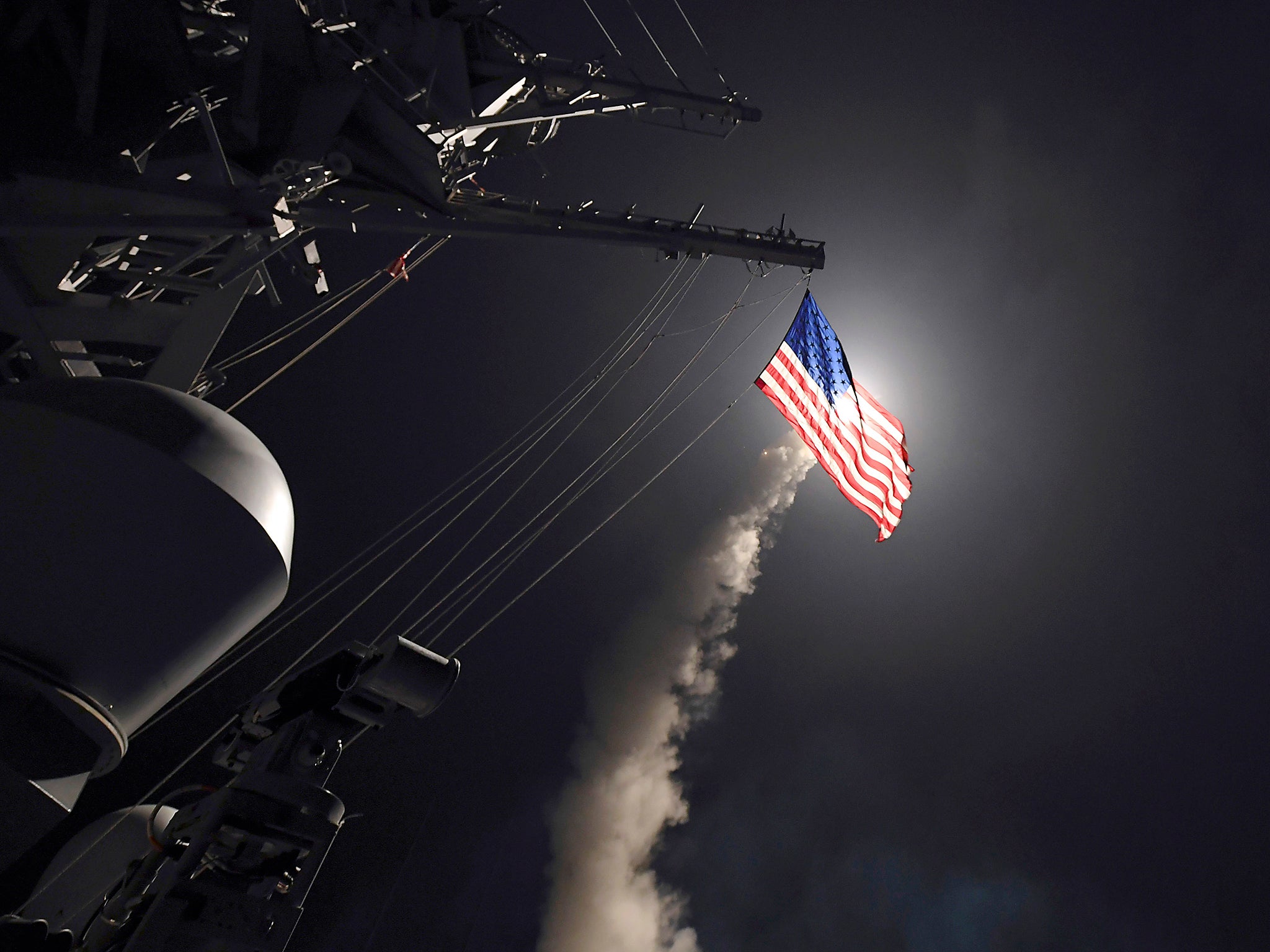Trump’s decisive attack arrived too late for the G7 to change the course for beleaguered Syria
Bashar al-Assad’s ruthless war of attrition against his divided enemies will grind on until the endgame, at which point there will be little left except rubble

Aside from differences of emphasis and tactics, the foreign ministers of the seven largest economies in the world can readily agree, for a change, on the central issue of foreign policy today: the continuing tragedy of Syria.
Donald Trump’s attack on a government airfield may well have been the most dramatic U-turn of the many in his short time in the White House; it may have flummoxed liberals conditioned to a knee-jerk barbed reaction to his activities; and it may, or may not, work.
The US Secretary of State, Rex Tillerson – like his boss – finds himself in the unfamiliar position of liberal hero, and surrounded by the warm regards of his counterparts from Britain, Japan, Canada, Italy, Germany and France at the G7 summit in Lucca, Tuscany, which must feel very distant from the horrors of Khan Sheikhoun. It was a unilateral act by the United States, this warning to Russia that America has developed a quite unexpected ethical dimension to its foreign policy, but it is one that finds ready backing in some of America’s closest allies.
In that context the notion that the US should “lead” on the issue and speak for the whole Western alliance is perfectly sensible, whether or not it is humiliating for Boris Johnson or part of some other childish game between himself and Theresa May. There are more important matters at hand, and America alone has the heft to deal with them.
United as the West may be, the real geopolitical problem rests where it has remained since the failed initiatives of Mr Tillerson’s predecessor, John Kerry, to build some sort of common agenda with the Russian foreign minister Sergey Lavrov.

Secretary Kerry tried words; The Donald prefers actions. Either way, without Russian support the Assad regime will continue to operate almost as it has since this pitiless civil war began.
No doubt the Syrian President or his commanders will think twice about using chemical weapons, or inflicting similar atrocities, on his own people. But we can be reasonably sure that, notwithstanding America’s warning, there will be further war, more killings and more dead children in the streets. In the absence of a more muscular response from the US and its G7 allies – and one that we know Russia and Iran are now threatening to answer with reciprocal force – Mr Assad’s ruthless war of attrition against his divided enemies will grind on until the endgame. By the end of it, there will be little left except rubble (though Isis will have lost most of its so-called caliphate, with the remainder in Iraq also shrinking by the week).
The kaleidoscope of dozens of other challenger groups, from the relatively moderate and democratic Syrian factions to the al-Qaeda semi-affiliate Tahrir al-Sham (until recently known as Jabhat al-Nusra) will not disappear simply because Mr Assad now occupies territory that they once claimed. The Sunni-Shia schism will find violent expression in Syria through terrorism. Given the way Mr Assad and his Russian allies have conducted the war, the Damascus government will be no more accepted than were those the Americans sponsored in Afghanistan or Iraq.
The conditions for another round of civil war, then, are well established – and there is very little that the G7 powers, including America, are able or willing to do about that. Shortly it will be primarily Russia’s problem, and one that indiscriminate bombing of civilian and other “tough” measures cannot solve.
Indeed, as we have seen, these tactics have simply filled to overflowing the well of bitterness against the Syrian government and its Russian ally. In many parts of Syria, that same hatred is also directed at Isis, a cruel regime that perpetuated its own blend of medieval torture and war crimes with 21st century social media skills.
Had the House of Commons, and others, agreed to take action in Syria in 2013 then perhaps things would be different now. As things stand, President Trump’s decisive and dramatic attack has arrived far too late to change the facts on the ground. As they tuck into their Italian banquet the G7’s foreign ministers should also agree on that.
Join our commenting forum
Join thought-provoking conversations, follow other Independent readers and see their replies
Comments
Bookmark popover
Removed from bookmarks